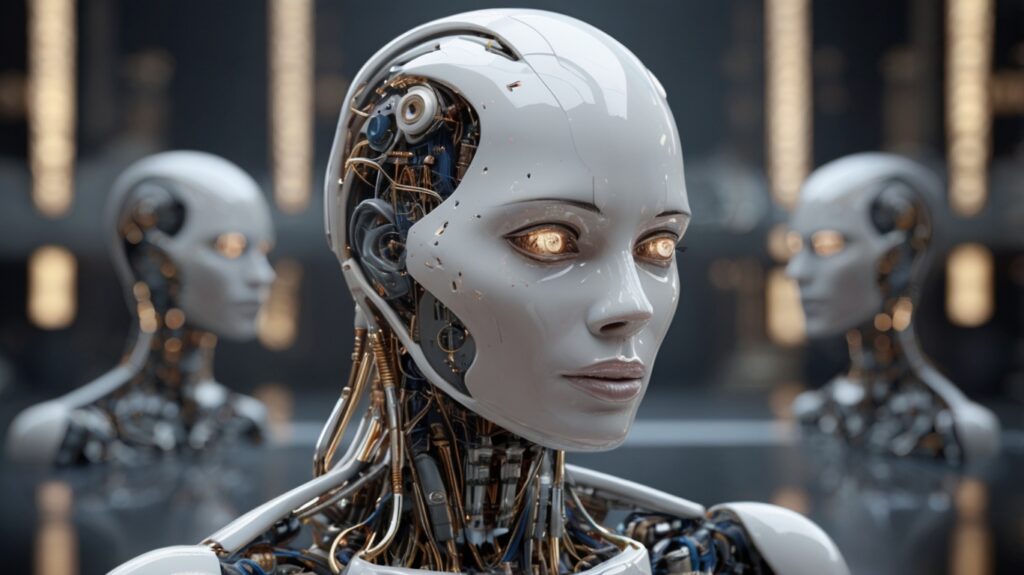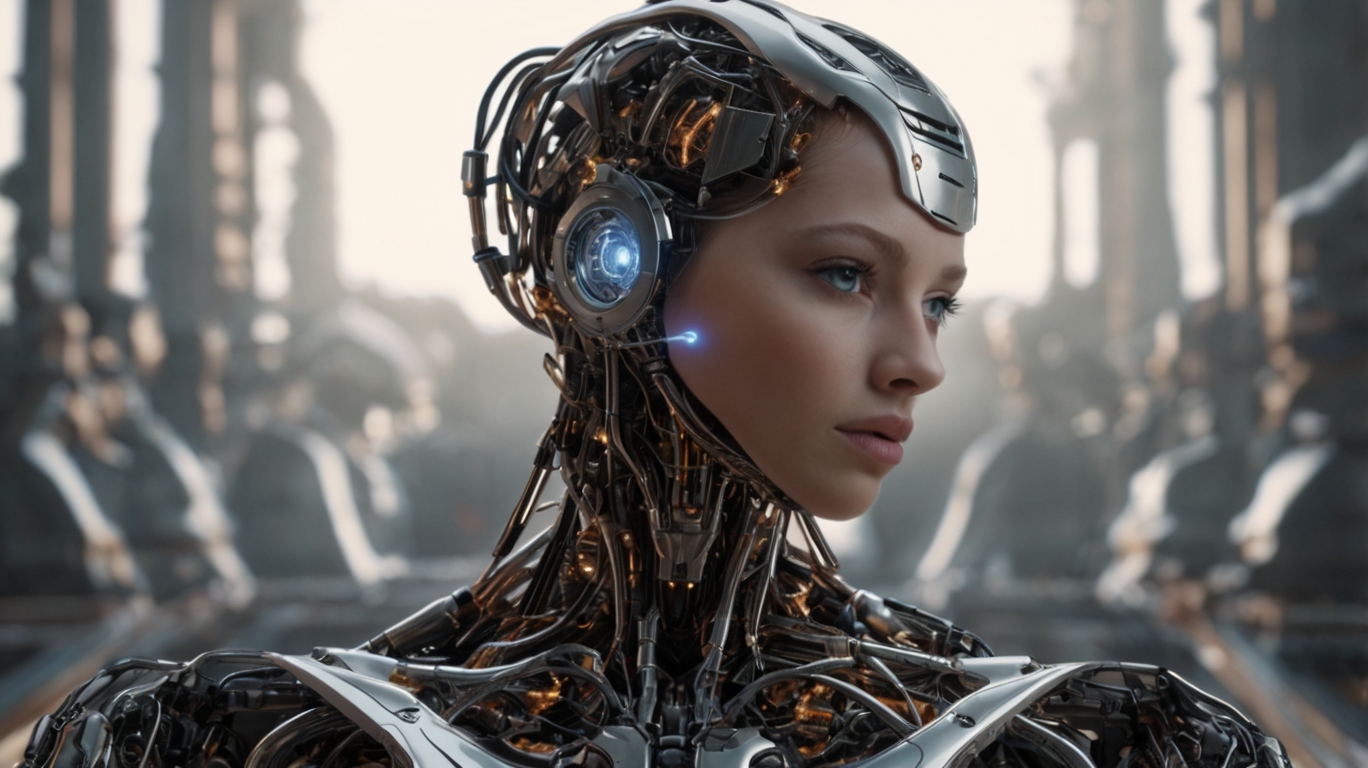The Impact of Artificial Intelligence:
In recent years, Artificial Intelligence (AI) has moved from the pages of science fiction into the core of our daily lives. From smart assistants like Siri and Alexa to recommendation systems on Netflix and Amazon, AI is transforming how we live, work, and interact. But its influence stretches far beyond convenience and entertainment. The rise of AI has profound implications for society and the job market, stirring excitement and anxiety in equal measure. While some herald it as the dawn of a new era of productivity and innovation, others worry about the loss of jobs, erosion of privacy, and widening social inequalities. This article explores the multifaceted impact of AI on society and the world of work, drawing from current trends, research, and expert opinions to provide a nuanced and human-centered perspective.
The Evolution of Artificial Intelligence
AI is not a single technology, but a broad field encompassing machine learning, natural language processing, computer vision, robotics, and more. The roots of AI go back to the 1950s, but only in the past two decades has the technology matured to the point where it can perform complex tasks previously thought to require human intelligence. Today, AI systems can analyze massive datasets, recognize speech and images, translate languages in real time, and even compose music and write essays.
This rapid development has been fueled by advances in computing power, the availability of big data, and breakthroughs in deep learning algorithms. Companies across industries are investing heavily in AI research and development, recognizing its potential to drive efficiency, cut costs, and create new business opportunities. Governments, too, are taking note, with countries like China and the United States positioning themselves as global leaders in AI innovation.

AI and the Changing Landscape of Work
One of the most immediate and visible impacts of AI is in the workplace. Automation, powered by AI, is reshaping job roles and the nature of work itself. In industries like manufacturing, logistics, and customer service, machines and algorithms are taking over repetitive and routine tasks. This trend has led to fears of mass unemployment and the displacement of human workers.
However, the picture is more complex than a simple narrative of robots replacing humans. While AI does eliminate certain types of jobs, it also creates new ones. For instance, the demand for data scientists, machine learning engineers, and AI ethicists has surged in recent years. Moreover, AI can augment human capabilities, enabling people to work more efficiently and make better decisions. In healthcare, for example, AI-powered tools assist doctors in diagnosing diseases and planning treatments, improving outcomes for patients.
The key challenge is ensuring that workers have the skills needed to thrive in this evolving landscape. This calls for a major investment in education and training programs focused on digital literacy, critical thinking, and adaptability. Lifelong learning will become increasingly important as the pace of technological change accelerates.
The Ethical and Social Dimensions of AI
Beyond the workplace, AI raises profound ethical and social questions. One of the most pressing concerns is privacy. AI systems rely on vast amounts of personal data to function effectively. From facial recognition to online behavior tracking, these technologies can intrude on individual privacy in unprecedented ways. There is a growing need for robust data protection laws and ethical frameworks to govern the use of AI.
Bias in AI is another significant issue. Algorithms are only as good as the data they are trained on. If the training data reflects societal biases, the AI system can perpetuate and even amplify those biases. This has serious implications in areas such as hiring, law enforcement, and lending, where biased AI can lead to unfair outcomes and discrimination. Ensuring transparency, accountability, and fairness in AI systems is critical to building public trust.
There is also concern about the concentration of power in the hands of a few tech giants that control the most advanced AI technologies and the largest datasets. This raises questions about monopolies, democratic governance, and the equitable distribution of benefits. Policymakers and civil society must play an active role in shaping the development and deployment of AI to ensure it serves the common good.
The Global Divide and AI
AI’s impact is not uniform across the globe. While developed countries are rapidly adopting AI technologies, many developing nations lag behind due to limited infrastructure, funding, and expertise. This digital divide risks exacerbating existing inequalities, both within and between countries. International cooperation and support will be essential to ensure that all societies can benefit from AI advancements.
Initiatives that promote open-source AI tools, shared research, and cross-border collaboration can help bridge this gap. Moreover, integrating local knowledge and cultural context into AI design can make these technologies more relevant and effective for diverse communities.
Preparing for an AI-Driven Future
As AI continues to evolve, proactive planning is essential. Governments, businesses, and educational institutions must work together to create policies and frameworks that harness the benefits of AI while mitigating its risks. This includes updating labor laws to protect gig and freelance workers, investing in public education, and fostering innovation ecosystems.
Public awareness and engagement are equally important. People need to understand what AI is, how it works, and how it affects their lives. Transparent communication, community involvement, and inclusive policy-making can help demystify AI and empower citizens to participate in shaping its future.
There is also a need to rethink our values and societal goals in the face of rapid technological change. What does meaningful work look like in an AI-driven world? How do we define human dignity and purpose when machines can outperform us in many tasks? These are deep philosophical questions that require collective reflection and dialogue.
Conclusion: A Balanced Perspective
Artificial Intelligence holds immense promise. It has the potential to revolutionize industries, solve complex global challenges, and improve quality of life. But it also comes with significant risks and uncertainties. The impact of AI on society and the job market is not predetermined—it depends on the choices we make today.
By fostering a human-centered approach to AI development, prioritizing ethical considerations, and investing in education and social inclusion, we can steer this powerful technology in a direction that benefits all. The goal should not be to resist change, but to shape it in ways that reflect our highest values and aspirations. AI is a tool—a remarkably powerful one—but it is up to us to decide how we use it.
The Impact of Artificial Intelligence:
FAQ: Understanding the Impact of Artificial Intelligence on Society and Work
1. What is Artificial Intelligence (AI)?
AI refers to a broad set of technologies that enable machines to perform tasks that typically require human intelligence. This includes machine learning, natural language processing, computer vision, and robotics.
2. How has AI evolved over time?
AI has roots dating back to the 1950s, but significant progress has occurred in the last two decades due to advances in computing power, big data, and deep learning algorithms. Today’s AI can recognize speech, translate languages, analyze data, and even create music or write texts.
3. Where do we encounter AI in everyday life?
AI is present in digital assistants like Siri and Alexa, recommendation systems on platforms like Netflix and Amazon, navigation apps, smart home devices, and even in healthcare diagnostics and financial services.
4. How is AI changing the job market?
AI is automating many repetitive tasks, particularly in industries like manufacturing, logistics, and customer service. However, it also creates new jobs in tech, data science, and AI ethics, and can augment human capabilities in various fields.
5. Will AI cause mass unemployment?
While some jobs may be lost to automation, others will emerge. The challenge lies in helping workers transition by providing training and education in digital skills, critical thinking, and adaptability.
6. What ethical concerns does AI raise?
Major concerns include:
- Privacy: AI systems often rely on large amounts of personal data.
- Bias: AI can reinforce societal biases if trained on biased data.
- Accountability: It’s often unclear who is responsible for AI decisions.
- Power concentration: A few tech giants control most of the data and AI resources.
7. How does AI affect global inequality?
Developed countries are leading in AI adoption, while developing nations face challenges such as lack of infrastructure and funding. This risks widening the digital divide and global inequalities.
8. What can be done to ensure AI benefits everyone?
Efforts should focus on:
- Promoting ethical AI development
- Strengthening data protection laws
- Investing in inclusive education and workforce training
- Supporting global collaboration and access to open-source tools
- Involving the public in discussions around AI governance
9. What role should governments and institutions play?
They should:
- Implement policies that protect workers and ensure fair use of AI
- Foster innovation while promoting transparency and fairness
- Prepare society for the changes AI brings through proactive planning and regulation
10. What is the long-term outlook for AI?
AI has the potential to transform lives and solve complex problems—but its impact depends on how it is developed and used. A balanced, human-centered approach can help maximize its benefits while minimizing risks.
Read also :




